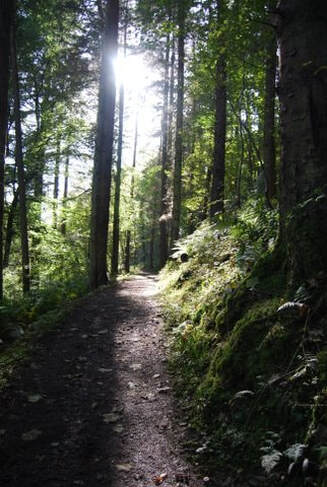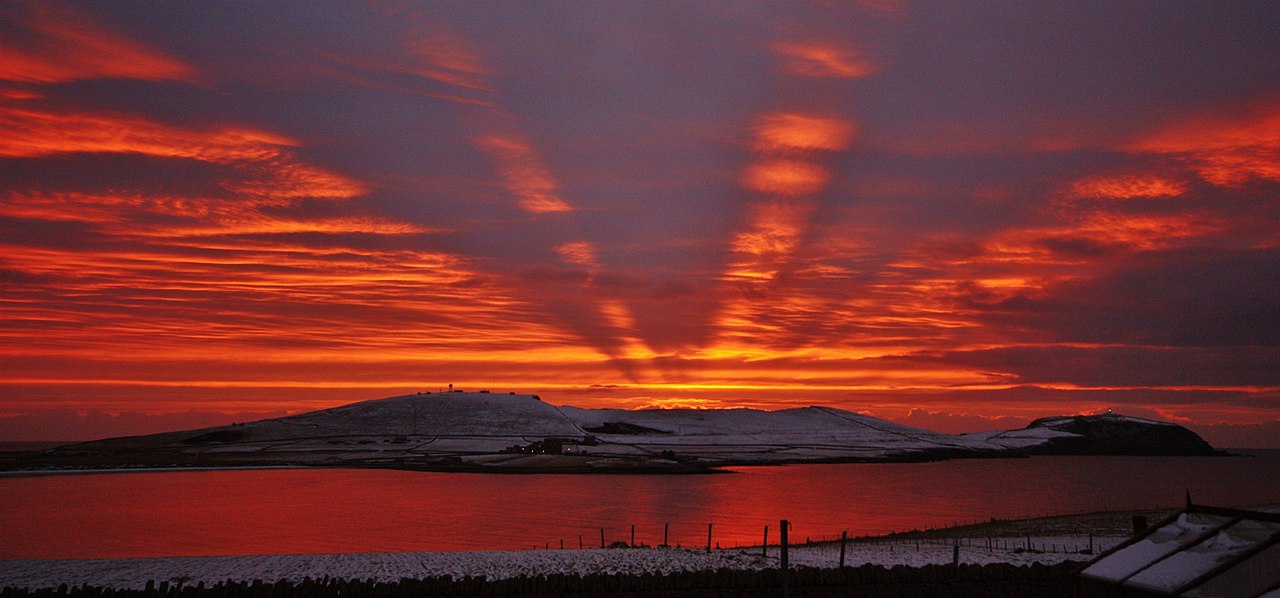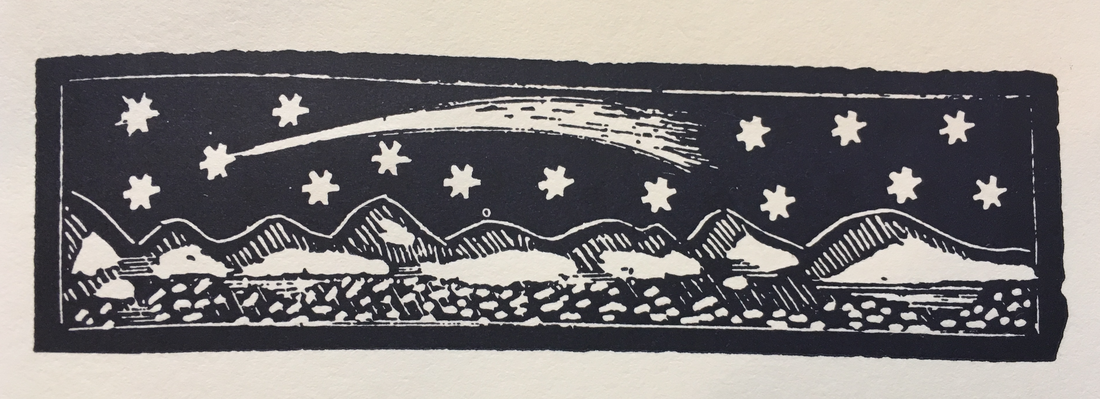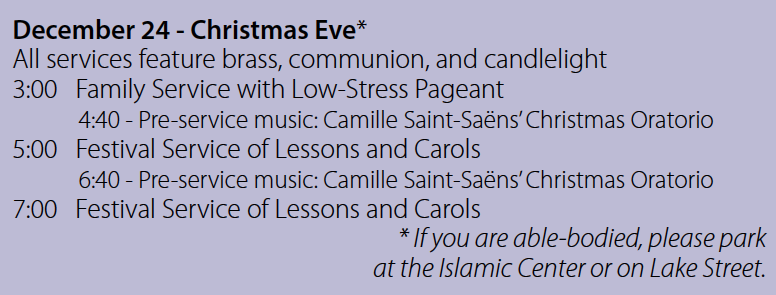|
We around the church take the importance of Christmas as a given these days.
But it wasn’t always so. The Gospel of Mark doesn’t mention a word about the birth of Jesus nor was Christmas part of the early church. Some did start gathering annually by the third century for a kind of commemoration of Jesus’ birth. Eventually the Roman Church in the 4th century fixed the date of December 25th for a feast day to honor Jesus’ birth. Yet, centuries later, some of our ancestors of faith on the Puritan side of the UCC family actually forbade the celebration of Christmas as too Catholic and as an expression of inappropriate frivolity. (Of course, they weren’t very good at most any fun or festivity.) It was the 19th century influence of the Oxford Movement, of Charles Dickens, and of retailers that won the day for our modern form of a gift-giving and family gathering Christmas holiday of import. My many years around religious studies, churches, and Christmas tells me that lurking behind all of this is something deeper that makes Christmas important: the winter solstice. Christmas is our Solstice. Christmas is a connection of cosmos and Christ. Throughout history, seasonality and the movements of the stars and planets were important to peoples all around the world. All cultures knew that we are part of the earth and that tracking the earth’s rhythms is essential for life. The peoples who lived far enough away from the equator knew that there is an importance in marking the travel of the sun. Life for so many depends on the seasonal return of the sun’s light and the new life it brings. While our Easter holiday is wonderfully tied to earth through the cycles of the moon, our Christmas holiday is tied to the earth rhythm of the sun, to the return of the light. That is why it is the perfect day to celebrate the incarnation of the Christ Light in Jesus’ birth. The light of the sun comes amidst darkness and the Light of Christ also comes amidst the intangible darkness of soul and society. The sun returns when the Son is born and so the Son must be born when the sun returns. Each coming begets the birth and growth of Light and Life. While we mark December 21-22 as winter solstice, the ancient Romans marked it as…. you guessed it…. December 25th. Christmas is our Solstice. Christmas is a connection of cosmos and Christ. I look forward to sharing the return of the Light with you all. Blessings, JT The Holy ONE is my shepherd, I shall not want. I am led to green pastures and beside still waters; My soul is restored and I am set on right paths Even though I walk through the darkest valley, I fear no evil; for you, Holy ONE are with me; your rod and your staff — they comfort me. You prepare a table before me in the presence of my enemies; you anoint my head with oil; my cup overflows. Surely goodness and mercy shall follow me all the days of my life, and I shall dwell in Your house my whole life long.  I am reminded of the changes of life this week as the Summer Solstice, our longest day of light in the Northern hemisphere, arrives on Friday. Astrologically it is the first day of summer though weather and calendar wise we often think of June 1 as the first day. I am barely used to summer weather and already after Friday the days will begin to shorten just a bit each day till we reach the Winter Solstice. Our most ancient ancestors intimately knew these astrological changes. These changes indicated growing seasons and harvest, times to be fallow, times to seek shelter from storms, times to celebrate, times to mourn, times to pray. Whether we measure our seasons astrologically or meteorologically, by calendars, or by work or school schedules, we live our lives in the midst of change. Each day is a series of changes in light, time and activity which we move through almost without thinking. So we could choose to be very open to all kinds of change as it comes to us. Life is change. And yet we are likely to be resistant to any change that brings even a hint of discomfort, any change that invites a new way to move through one of our routines, any change that rearranges the status quo of a beloved community. Some changes, such as illness, death, divorce, moving are so large that they bring understandable grief. Other changes come that are just not “the way things used to be done” or the way they “should be done because they have always been done this other way.” These changes can stretch us as much as the ones that bring us grief. In his book, Quietly Courageous; Leading the Church in a Changing World, Gil Rendle writes of the changes challenging the church in our times. Those of us who were around in the last part of the 20th century experienced a convergent culture during and after World War II. This was a time in America when the people tended to converge, pull together to work for the common good of the country, of the community, the church, the family. This was a culture of joining institutions that built community through the joys and responsibilities of membership. The flip side, of course, was that important differences were swept under the rug so as not to rock the status quo. As the 20th century wound down starting in late 60s, our culture shifted to a divergent culture. In a divergent culture the social contract moves from seeking membership in societal institutions to seeking individual well-being. Now in the 21st century “the correct way to get on with life is to recognize that each of us has the right to live as he or she pleases so long as we do not interfere with the right of the other people to do likewise.”[i] The celebration is that differences are no longer swept under the rug but are free to be expressed! Historically, strong churches have been built with the social contract of a convergent culture, the culture of the group. But that time has gone. Now we live as the church in a culture of the individual. This is neither good not bad....it just IS. It is the cultural change that we are dealing with as church in the 21st century. We can no longer just say, “The problem is membership. There must be a specific solution from back in the day, from the way we used to do things. If we just return to _______ (fill in the blank), we can rebuild our church membership.” We are learning to say, “Here is our new situation in this new divergent culture. Let’s bring together all our diverse ideas and seek God’s ideas for our changing times. What are the new ways, maybe, some old ways, and more importantly, ways we haven’t yet encountered in which God is leading us to be and build the Body of Christ in the world?” Rendle’s book encourages us to be “quietly courageous” as we lead one another into the future. I paraphrased Psalm 23 at the beginning of this reflection because it is a song of encouragement for quiet courage, a song that reminds us that through all changes God accompanies us. We are never left alone! As you move through the changes of your life, as we change and grow at Plymouth, may we always remember the “Accompanying God” of this psalm. I also leave you with words from a prayer by the late William Coffin, a former pastor of Riverside Church in NYC and a former chaplain at Yale University. O God, whose mercy is ever faithful and every sure, who art our refuge and our strength in time of trouble, visit us.... We need a hope that is made wise by experience and is undaunted by disappointment. We need an anxiety about the future that shows us new ways to look at new things, but does not unnerve us... [ii] May the words of the psalmist and the words of the pastor send you forth into the inevitable changes of life “with a gladsome mind, free and joyful in the spirit of Jesus [the] Christ!”[iii] Blessings, Jane Anne [i] Gil Rendle, Quietly Courageous; Leading the Church in a Changing World, (Rowman & Littlefield, New York, NY, 2019, 46.) [ii] Ibid., 10. [iii] Ibid., 11. AuthorThe Rev. Jane Anne Ferguson, Associate Minister, is a writer, storyteller, and contributor to Feasting on the Word, a popular biblical commentary. She is also the writer of sermon-stories.com, a lectionary-based story-commentary series. Read more This time of year can be tough: Some of us get seasonal affective disorder as the days become shorter and shorter. * Some churches have a “Blue Christmas” service for folks who have experienced loss in the past year or so. To be sure, the holiday season can be difficult for those of us who have lived through the death of a family member or dear friend. But, rather than “going all Elvis on you,” we at Plymouth have a tradition of the Longest Night Service, which acknowledges the complex feelings of the season. Darkness can be overwhelming, and when it is, being together in a community of kindred souls in the company of God can be reassuring that the light is coming. We all need a reminder that, as the prologue to John’s Gospel tells us, “the light shines in the darkness, and the darkness did not overcome it.” It is a holy thing to acknowledge that we, some of us, feel adrift at this time of year. My hope for our Longest Night Service is that it provides a spiritual mooring for those who attend. This year we will hear our newest choral group, the Plymouth Chamber Choir, as well as handbells, harp, and flute, and we will use a litany from the Iona Community in Scotland. Jake and Jane Anne will preside at communion, and (for those who wish) I will offer individual prayers for healing and wholeness. It is a dark time of year, but our faith in God can help us see through the darkness into the light. The light is surely coming! Please join us this Sunday, December 16, at 6:00 p.m. as we join together as witnesses both to the darkness and to the light. Deep peace, * Any kind of depression is nothing to fool around with…help is available…ask one of your pastors or your physician or therapist for help. AuthorThe Rev. Hal Chorpenning has been Plymouth's senior minister since 2002. Before that, he was associate conference minister with the Connecticut Conference of the UCC. A grant from the Lilly Endowment enabled him to study Celtic Christianity in the UK and Ireland. Prior to ordained ministry, Hal had a business in corporate communications. Read more about Hal. |
Details
|




 RSS Feed
RSS Feed